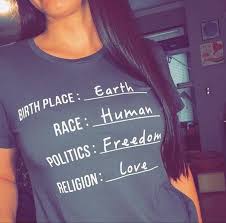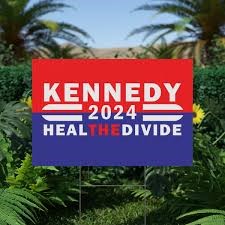As a child, I was aware of the credo to never discuss politics, race or religion, but I guess I didn’t think it applied to me. I distinctly remember, as a pre-teen, when I was with my parents at a neighbor’s home. When the topic of conversation turned to race, my parents quietly listened, in disagreement, until I chimed in with, “I choose to marry the person I love, regardless of race”.
My parents’ reaction was noticeable, but they weren’t shocked at my comment, just hoping to avoid conflict with our neighbors. I felt proud that my parents supported me and understood my values. That memory- and my respect for my parents- is just as strong decades later.
To this day, I wonder why people feel the need to avoid conversations about these subjects. I’m sure some scholar could trace the history of this behavior, which might reflect some leftover repression from the Victorian Age. Yes, people have strong opinions about these topics, but why shouldn’t we allow people to discuss their viewpoints? It’s good practice for honest communication, accepting different ideas, and practicing non-judgement. Since RFK Jr. announced his candidacy for president, I have witnessed many thoughtful, political discussions (many expressions of opinion, often based on fact, but sometimes based on emotion).
For example, on a recent visit to my local public library (my happy place since childhood), I found myself in a conversation about the movie FARGO and the subsequent TV series (plug, plug). I think they’re brilliant- the word I use to describe Nicole Shanahan ad nauseam. A gentleman standing close by joined the conversation. The subject changed to the Oscars, until he noticed the Kennedy24 logo on the sleeve of my “Make Earth Great Again” T-shirt. Without a change in tone, he called me a liberal. I replied “I’m me.” He offered that he was a conservative.
As our conversation continued for 45 minutes, with no evidence of slowing down, it was the richest I’ve had with a stranger in months. My new “friend” was intelligent, humorous, and open to hear my opinions, as I was to his. Finally, as we wrapped things up, I pointed out to him that regardless of how people label themselves, it appeared that we agreed on most everything we discussed. That we have more in common with others than we think.
What if future generations were trained to thoughtfully, respectfully discuss the “difficult” subjects we avoided in the past? Maybe it’s time to recognize that we are all friends, whether we know each other or we’re strangers.
Warning: This is a cautionary tale. If you follow this example, awareness, growth and change can occur, personally and in your relationships.


